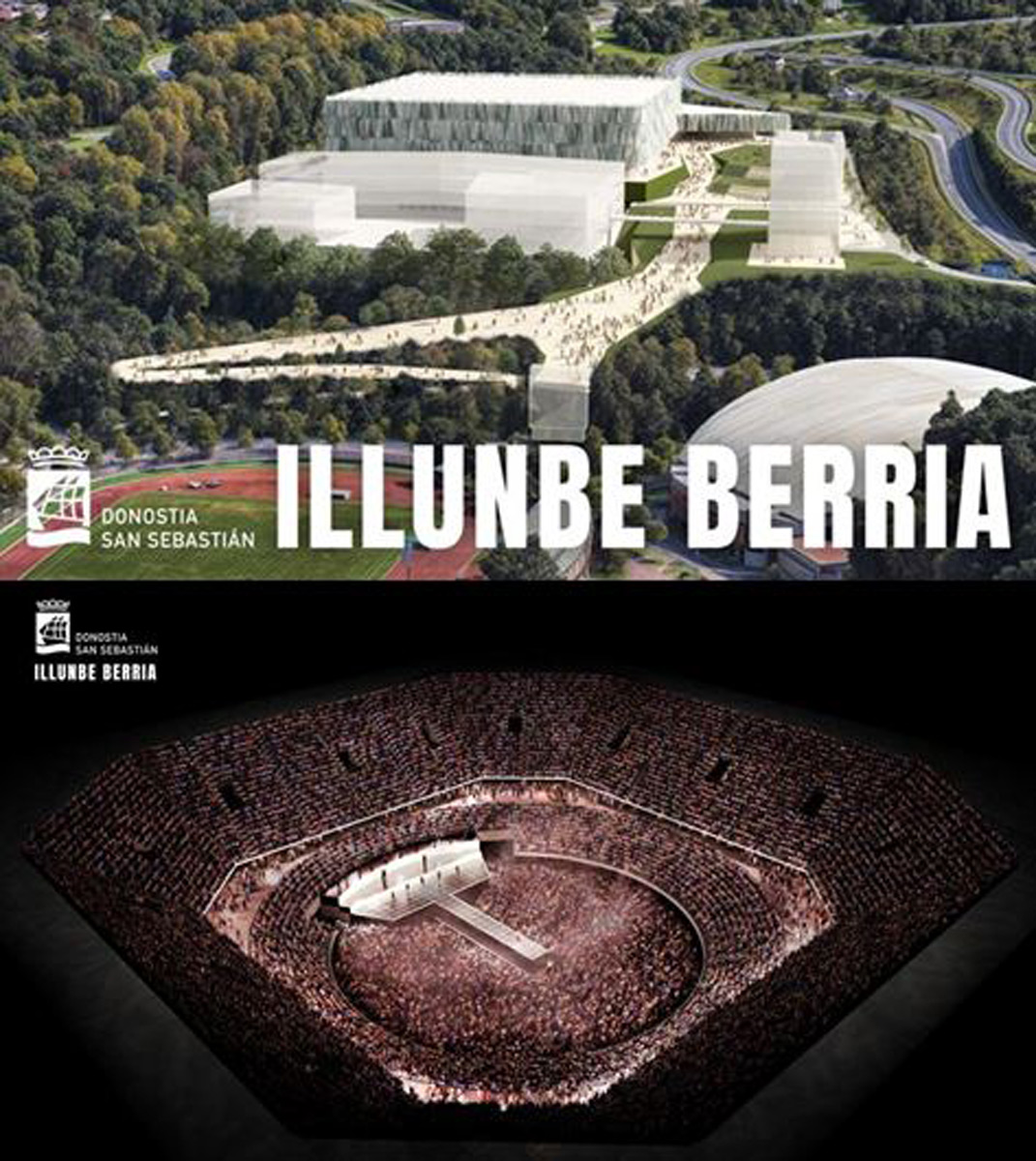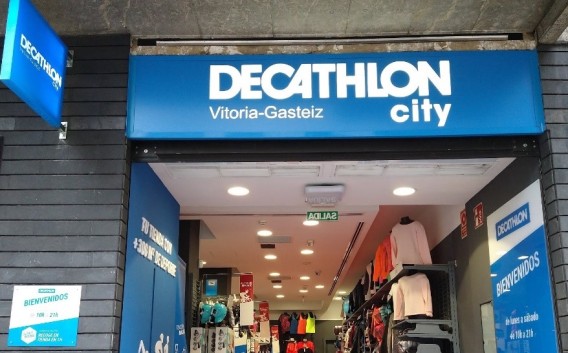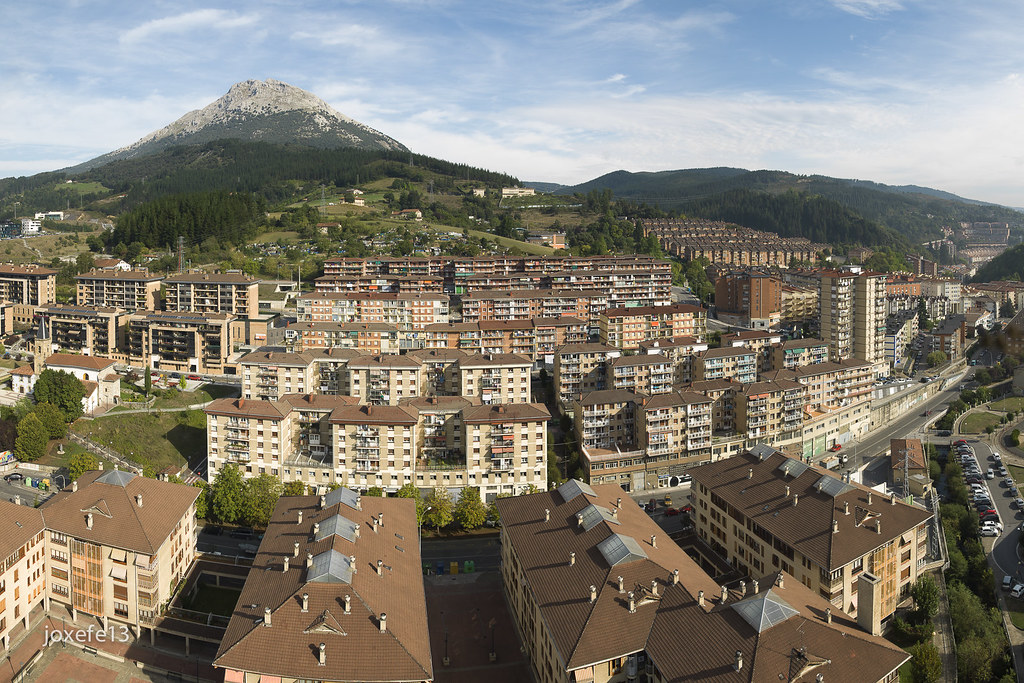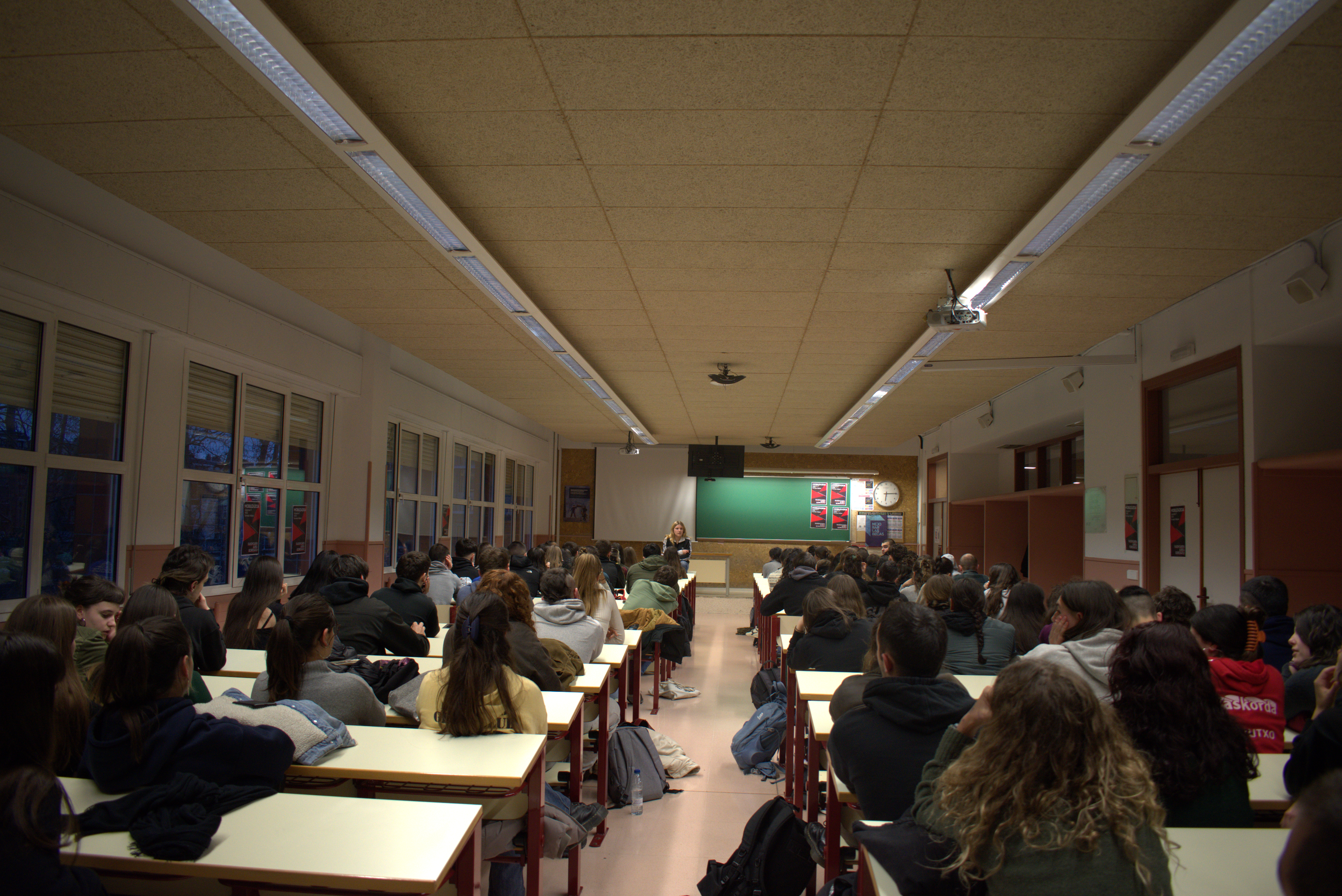Laboratory of embodied ideas
- The Artedrama Basque Laboratory (ADEL) is organized once again this year by the Artedrama Performing Arts Platform in Aulesti, in collaboration with local agents. From the 24th to the 30th of April you will be able to receive training courses, along with a generous offer of theatre open to the public every evening.
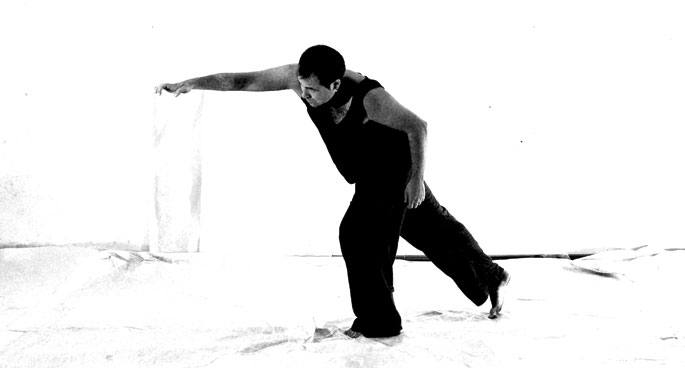
In 2006, ADEL was born, an initiative that seeks to respond to the concerns and needs that playwrights and playwrights working in Basque may have. Ander Lipus explains that the ADEL has already taken its own form, which has been strongly influenced by the involvement of the people of Aulesti: “That makes sense of what we do. In the ADEL we address two areas: on the one hand, the training is given between students and teachers, which has its own trajectory as a meeting point. The aim is for teachers to transmit to the public the aesthetic and technical perspectives of their theatre. On the other hand, there are events that take place with a view to the town: this line has become a showcase for small amateur and professional theatre works in Basque.” The ADEL organizers are thinking about the challenge of deepening their laboratory character with a view to the future, such as organizing the days around a specific theme. “Taking a word or a topic like ‘space and the actor’ and organizing courses around it may be one of the challenges of the future.”
This year’s teachers will be Ainara Gurrutxaga, Miren Tirapu, Maria Urlanda, Miren Gaztelañaga and Iñake Irastorza. All women, a fact that unfortunately has not gone unnoticed. According to Lipus, consciously or unconsciously they have also had this present. “The incident happened just last year: the two girls who were among the teachers failed for different reasons and as a result the teachers were all men. It’s funny how when teachers are just men, that doesn’t call attention. I would say that in the theater there is a normalized number of women and men. However, when we turn to classical theatre, almost all models are masculine. That sounds like something to think about. This year we have decided with a controlled accidental that the teachers are girls and give them a certain equality, without including them more in gender issues”.
Gurrutxaga and Gaztelañaga, in addition to giving classes, will participate in two performances at the ADEL. In the case of Iñake Irastorza, the word will be the protagonist: “We will work from the understanding of the text, we will address the different possibilities that a text provides. I have chosen small texts as a starting point, the ultimate goal will be to go into practice based on the text.” María Urzelai will give an account of the key axes in her career, the first of which is “codification”: “The actor can leave it completely codified when working on a text or a character, without affecting the freedom of the actor”. On the other hand, Urzelai will propose to work on the concept of “grounding”: “Actors usually warm up and start working with a lot of energy. In this way, we start from the state of relaxation, completely rooting the actor in the moment, in his body and on the stage. When we have been working for a long time, the actors become overconfident in the things that work well, which can lead to falling into different habits and clichés. We’re going to find a way to get back to being a basic actor.” Urzelai has made a very positive assessment of ADEL: “The people at Artedrama always try to bring in teachers who have something to say. When I look at the list of things that are different, I think they will complement each other.” Although working time will be short, Urzelai thinks it can be intense: “I would say ADEL is one of the most interesting things to do in the Basque Country.” For Xabino Alkorta, a member of Artedrama, the meeting point is what gives the initiative an interesting dimension: “Many people have met in Aulesti, and this has been reflected in the projects that have been created later. Going beyond a normal course and the relationship that emerges with the people gives us the strength to continue working year after year.”
A space of reflection
As one of the pillars of the ADEL itself is formation, reflection on it seems inevitable. As Lipus points out, there is a great deal of talk among playwrights and amateurs about the laws or techniques of theory and theatre, and there are hardly any books or reflections. Along with this, there is the project of the school of dramatic art in the air that has been mentioned many times and has not been structured for the moment. “Those of us who speak Basque complain about the place that Basque will have there. The other question is what artistic project will be oriented in this school, since it is very different to prepare the actors for the theater or for a broader framework, such as working in television. It is very interesting and necessary to create a school with an artistic project that allows the actor to go out with a model.” In this sense it is important to reflect, but above all to put it into practice without waiting for anyone. “We have to be self-critical. It’s true that we have a lot of work to do and maybe we don’t have enough strength and unity, but I think that we have to start discussing these formulas, that the demand to channel it will not come from the Midwestern world.”
People who work in Basque still have to justify themselves. “We are working in constant resistance. Recently, Ximun Fusch was asked from the midday world why we didn’t do a work like Ashes in Spanish and French to expand the market. He replied that we are thinking about doing it in Chinese because the market is wider. This need for constant justification burns me. We must always label our meeting points and initiatives as ‘Basque’ and that has its risk, since we seem to be less and less. This means channeling initiatives in Basque from ‘Basque’, for example, and in Basque from ‘culture’. I think we should strengthen the popular projects. Aulesti, for example, is a very Basque country and we don’t have to justify anything, we do theater in Basque because it’s our language and that’s it. In the Basque Country, the Basque language brings us together, but also the need to express ourselves and create spaces to encourage reflection and debate around the theatre”.
ADEL has had a different impact over the years, as witnessed by the collaboration of the Usurbil and Zarautz meetings. “In our imaginary we always talk about pseudo-networks, because they are not official networks, because they are projects that come out of popular initiative or personal forces. We revoke the autonomy and intrinsic personality of each project, they are all respectable and they bring richness to our culture in the field of theatre”.
Reflection of Contemporary Theatre
Xabino Alkorta explains that, in addition to the training, the key to channeling the participation of the people of the town is the offer of events in the evenings (in the table above the program of this year). “Over the past six years, there have been many, many different performances. Whether you like some of the works or not, the attitude of the people of Aulesti in general has been very open.” With the selection of shows there are no fixed criteria, but the axes that have been consolidated with the work done. “First of all, they are often works that can be left out of traditional networks, among other reasons because in Aulesti there are no ideal scenic spaces and in large formats the budgets are huge. It is a small or medium format. Since we have an inherent tendency to see Basque theatres all year round, we always aim to find works that can fit well in Aulesti. On the other hand, we have always had a tendency to bring theatrical works from the North. In the north amateur theatre groups are very productive and the word amateur gets along very well with the quality.” They are usually always left with jobs that they would like to include outside. “Fortunately, it’s not a problem for us to stick to the program.”
- Apirilaren 25ean 21:00etan: Munstroa, Urki Mugu-ruzaren eskutik.
- Apirilaren 26an 21:00etan: Sagarren denbora filmaren proiekzioa.
- Apirilaren 27am 21:00etan: Gure bide galduak Deja-bu taldearen eskutik.
- Apirilaren 28an 21:00etan: Stereo Miren Gaztañagaren pieza, ondoren Herio heroi Metrokoadroka kolektiboaren eskutik.
- Apirilaren 29an 21:00etan: Iduzkilore antzezlana.
- Apirilaren 30ean 22:00etan: Errautsak antzezlana, ondoren Oreinak taldearen kontzertua.
Larunbatean pertsona talde batek Tolosaldeako Kontseilu Sozialistako kide bati eraso egin ziola salatu dute. Azaldu dutenez, "faxistei aurre" egin zien propaganda jartzen ari zirela, eta piperbeltz espraiarekin zipriztindu zuten.
Haurdunaldian diren emazte bakartuentzat, harrera-leku bat proposatuko du La Maison des Sept Vallées elkarteak Donibane Lohizunen. Pariseko bikote jabe pribatu baten gogoan sortu zen xedea. Donibane Lohizunen, 2021ean Iturria izeneko etxea erosi eta, bazter bastizetan... [+]











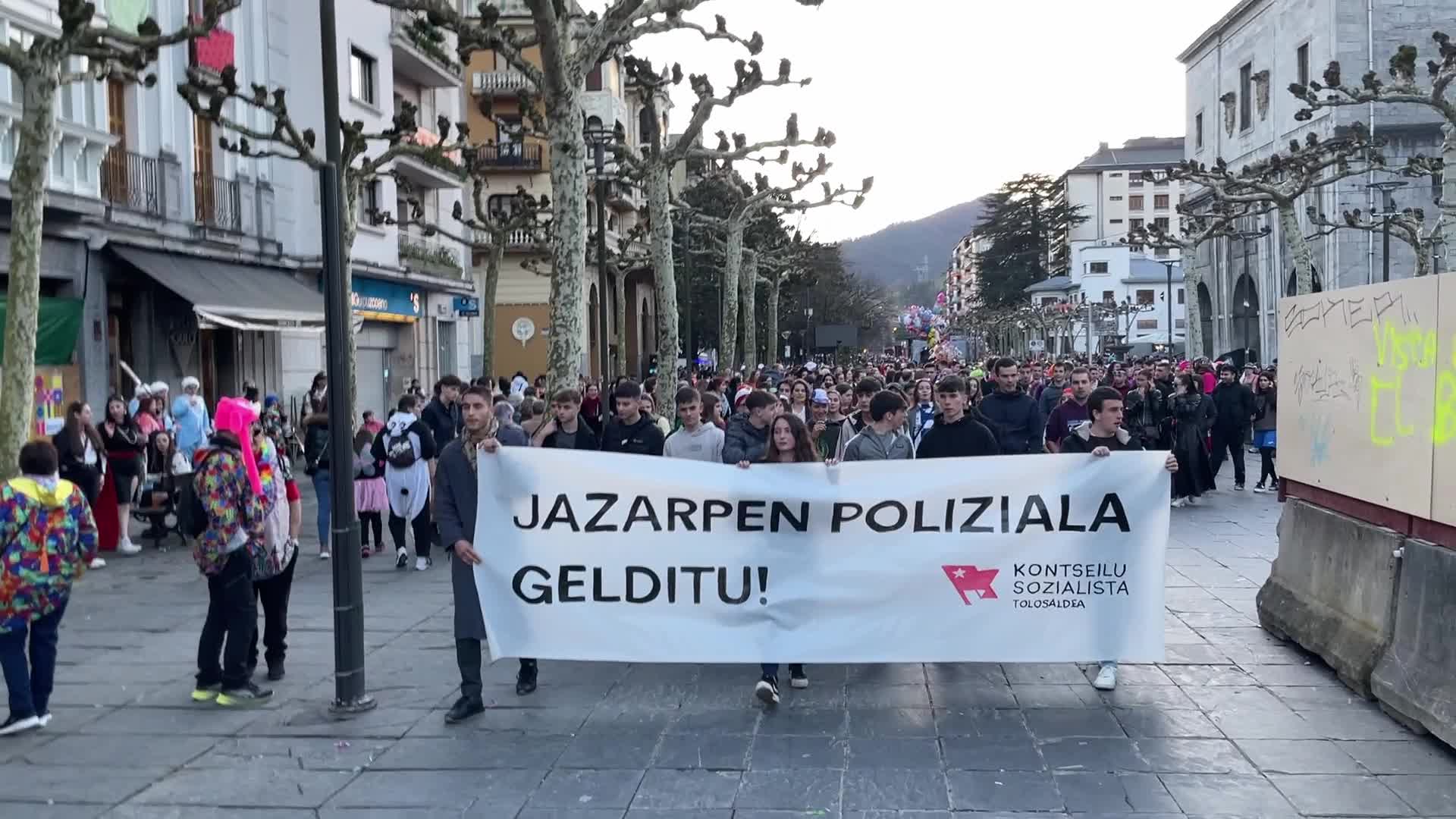
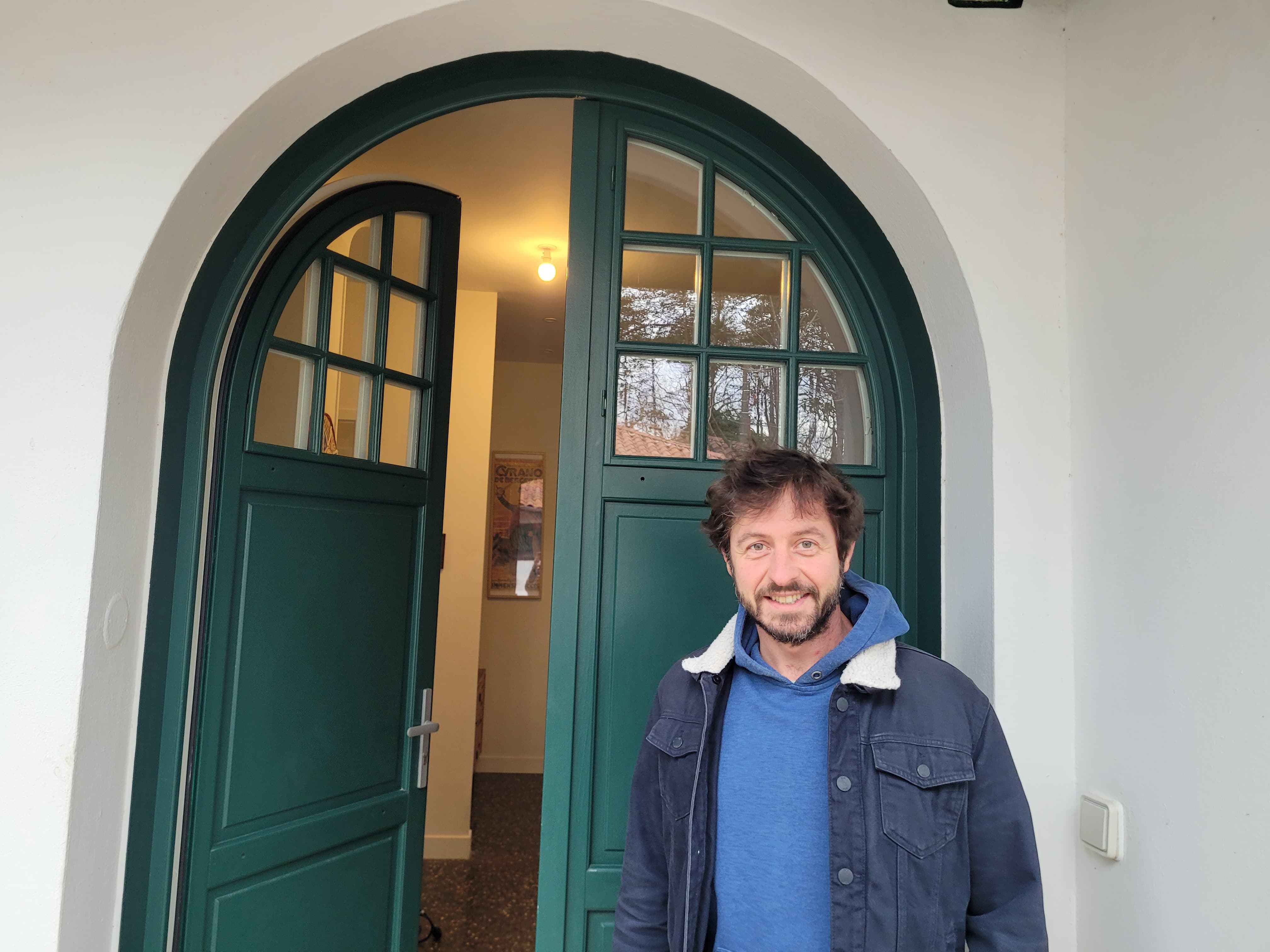
_2.jpg)
